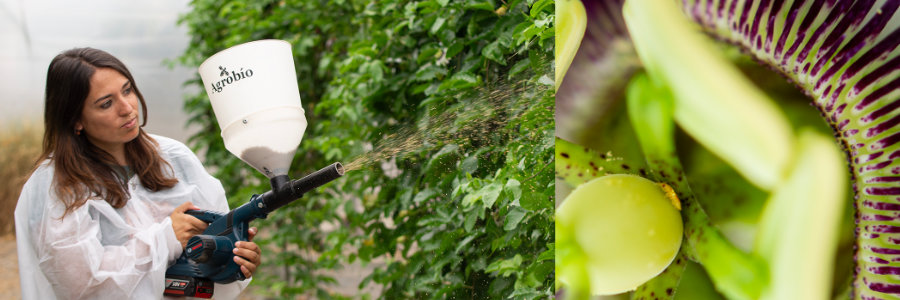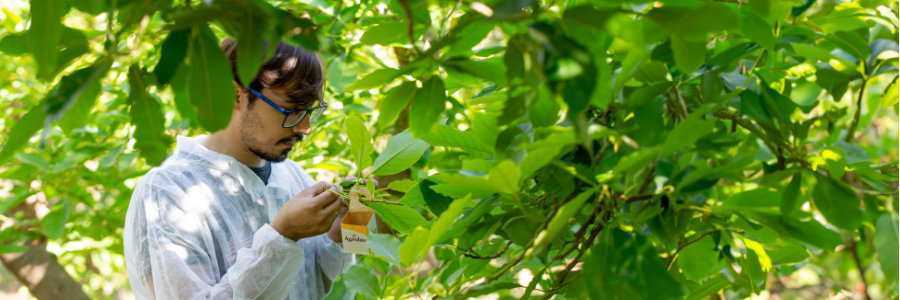Innovative biological solutions in subtropical crops

Agrobío, 28 October 2024
Agrobío promotes the use of biological control and agroecological infrastructure to combat emerging pests in subtropical crops such as papaya, passion fruit, dragon fruit, avocado, and mango.
The current pest situation affecting tropical crops is more challenging than it was a few years ago. Rising temperatures and lack of rainfall are worsening the pest issues in subtropical crops, surpassing economic damage thresholds in some affected tropical species. Emerging pests, their accelerated reproduction, and the reduced efficacy of certain phytosanitary treatments have driven producers to seek more sustainable alternatives.
Agrobío, a leader in the development of biological solutions, introduces new strategies based on inoculative and inundative biological control for managing pests like red spider mites, thrips, and aphids. These strategies support residue-free fruit production, meeting consumer and environmental demands.
Control of spider mites, thrips and aphids in subtropical crops
![]()
To tackle this challenge, Agrobío has implemented innovative protocols. “We have developed preventive and curative auxiliary release strategies that are showing excellent results in protected crops, such as greenhouse-grown papaya, where we control red spider mites by releasing phytoseiid mites,” Agrobío highlights. “Additionally, in dragon fruit and passion fruit crops, releasing natural enemies has proven effective for managing thrips and aphids.”
Agrobío offers a comprehensive catalog of commercial solutions based on predators and parasitoids. Among the most effective are Phytoseiulus persimilis (PHYTOplus) and other mites like A. andersoni (ANDERcontrol) and A. swirskii (SWIRScontrol), which control red spider mites. N. californicus (AMBYCAcontrol) can also be used preventatively for this and other pest mites, such as the crystalline mite of avocado.
Functional biodiversity in subtropical crops
One of the main challenges in using natural enemies is maintaining their populations in outdoor crops. “For auxiliaries to establish in crops, agroecological infrastructures such as hedgerows, vegetation islands, and carefully selected ground covers are essential,” explains their development department. The plants used must be from biodiverse seeds, adapted to the soil and producers’ management practices, and provide a cascade of flowers and resources year-round to help natural enemies and released auxiliaries establish themselves in the crops.
To support this, Agrobío advises farmers on selecting and managing plants that provide shelter, alternative food, and optimal conditions for auxiliaries throughout the year.
Responding to new threats

Globalization has introduced pests that were uncommon in our region, such as certain mealybugs and invasive thrips, which damage new shoots or deform fruits, affecting product quality. “In mango cultivation, one of the major issues is controlling mealybugs, especially the white mealybug. At Agrobío, we are researching effective predators for controlling it and expanding our catalog with new auxiliaries.”
In this regard, Agrobío continues to invest in innovation and the development of effective strategies to address challenges in subtropical crops, with the aim of promoting more sustainable agriculture that enables the production of high-quality food.


